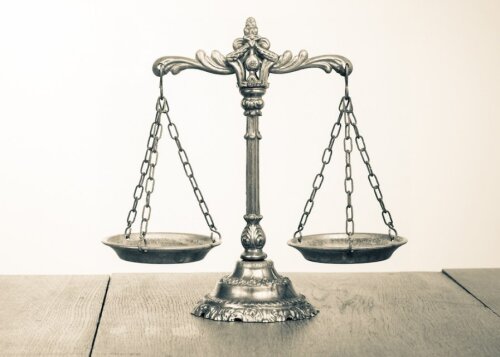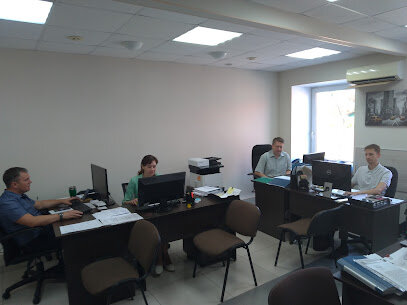Best Bankruptcy Lawyers in Perm
Share your needs with us, get contacted by law firms.
Free. Takes 2 min.
List of the best lawyers in Perm, Russia
About Bankruptcy Law in Perm, Russia
Bankruptcy law in Perm, Russia, operates within the national legal framework that governs insolvency and its procedures across the Russian Federation. The core instrument is the federal insolvency law, which sets out how insolvency is identified, how bankruptcy cases are opened and conducted, and what rights and duties debtors and creditors have during the process. In Perm, as in other regions of Russia, bankruptcy cases are processed by the commercial courts - the Arbitration Court of Perm Krai - and are administered by court-appointed insolvency practitioners sometimes called arbitration managers or trustees.
Bankruptcy proceedings can apply to legal entities, individual entrepreneurs and, under conditions set by federal law, private individuals. The law distinguishes between different procedures and goals - for example, procedures aimed at financial recovery and rehabilitation of an enterprise, and procedures aimed at liquidation and distribution of assets to satisfy creditor claims. For individuals there are provisions that allow restructuring of debt or, in certain cases, discharge of part of the debt after the bankruptcy process is completed.
Why You May Need a Lawyer
Bankruptcy involves complex rules, strict procedural deadlines and significant consequences for personal and business assets. You may need a lawyer in these common situations:
- You believe you are insolvent or your business cannot meet liabilities on time and need to know legal options for restructuring or protection from creditors.
- Creditors have started enforcement actions, such as court claims, seizure of assets or bailiff procedures.
- You want to file for bankruptcy - a lawyer can prepare the petition, assemble required documents and represent you in court.
- You are a creditor and need to protect your interests in a bankruptcy case, including filing claims and participating in creditor meetings.
- You face allegations of fraudulent behavior, wrongful transfers, or actions that could give rise to civil or criminal liability in connection with insolvency.
- You need to negotiate a settlement, debt restructuring, or to consider alternative measures such as extrajudicial workout agreements or temporary moratoria.
A specialist lawyer or an experienced arbitration manager can help assess your financial position, explain available procedures and consequences, prepare correct documents, represent you at hearings and interact with creditors, courts and enforcement authorities. Early legal advice often helps preserve value and avoid unnecessary losses or liability.
Local Laws Overview
The legal framework in Perm follows federal insolvency law. Key aspects to be aware of include:
- Jurisdiction and courts - Insolvency cases are considered in the Arbitration Court of Perm Krai. That court applies federal bankruptcy legislation and local procedural rules when handling petitions and hearings.
- Types of insolvency procedures - The law provides for several procedures with different aims: observation, interim supervision, financial rehabilitation, external management, bankruptcy proceedings and liquidation. Which procedure applies depends on the debtor status, creditors claims and the court assessment.
- Individuals and entrepreneurs - Federal law contains rules that allow individual entrepreneurs and private individuals to be declared bankrupt under certain conditions. These provisions include requirements to demonstrate inability to pay debts over a statutory period and to meet other eligibility criteria set by law.
- Role of insolvency practitioners - The court appoints an insolvency practitioner or trustee to administer the bankruptcy estate, evaluate claims, manage or sell assets and distribute proceeds to creditors according to priority rules.
- Creditor rights and priority - Creditors must file claims within specified deadlines. The law ranks creditor claims by priority categories - for example, secured creditors, employee claims, certain state claims and unsecured creditors - and distributions follow that order.
- Enforcement and restrictions - During formal insolvency stages, courts can impose restrictions on debtor actions, including restrictions on transactions involving high value property, and can invalidate certain transfers made with intent to defraud creditors.
- Criminal and civil liability - Conduct such as deliberately hiding assets, intentionally creating insolvent status or fraudulent conveyance can lead to civil recovery actions and, in severe cases, criminal charges.
Because federal insolvency law is periodically amended and there are important procedural details and local practices, it is important to obtain current advice from a lawyer or qualified insolvency practitioner in Perm for your specific case.
Frequently Asked Questions
What is considered insolvency or bankruptcy in Russia?
Insolvency generally means a debtor is unable to meet monetary obligations as they fall due. Under federal law, a debtor may be recognized as bankrupt when they cannot pay debts for a certain consecutive period and meet statutory criteria. A court decision opens a formal insolvency case and triggers specific legal procedures.
Who can file a bankruptcy petition - creditors or debtors?
Both creditors and the debtor may file a bankruptcy petition. Creditors often file when debtors fail to pay and other enforcement attempts fail. Debtors may file proactively to seek an orderly restructuring or discharge where permitted. The court evaluates the petition and admissibility before opening the case.
Can private individuals in Perm file for bankruptcy?
Yes, federal law provides mechanisms for declaring individual insolvency under specified conditions. Eligibility rules and procedural requirements must be met. Outcomes for individuals can include debt restructuring and, in some cases, partial debt relief following bankruptcy procedures. It is essential to check current statutory criteria with a lawyer before filing.
What happens to my property during bankruptcy?
Once a bankruptcy case is opened, a court-appointed administrator typically takes control over the debtor’s assets included in the bankruptcy estate. Certain property may be protected under law or exempt from sale, but many assets can be used to satisfy creditor claims. Transactions made shortly before bankruptcy may be reviewed and possibly reversed if they were intended to defeat creditors.
Will I lose all my assets if my company is declared bankrupt?
For legal entities, bankruptcy often leads to liquidation of corporate assets to satisfy creditors unless a rehabilitation or restructuring plan succeeds. However, corporate bankruptcy does not automatically make owners personally liable for corporate debts, except where the law allows piercing the corporate veil, or if there is evidence of fraudulent activity, personal guarantees or other grounds for holding individuals responsible.
How long does a bankruptcy process take?
Duration varies widely: short where liquidation is straightforward, and much longer where complex asset recovery, restructuring or creditor disputes occur. Some proceedings may last months, others years. Timelines depend on the type of procedure, the asset structure and the number of disputes. Your lawyer can give a realistic estimate based on case specifics.
What costs are involved in filing for bankruptcy?
Costs can include court fees, fees for insolvency practitioners, legal fees for representation, costs for appraisals and expert reports, and administrative expenses connected with asset management or sale. The exact amounts depend on the case scale and complexity. Some costs may be recoverable from the bankruptcy estate, subject to statutory priority rules.
Can creditors object to a bankruptcy petition?
Yes. Creditors can and often do object to petitions. They may challenge the existence of insolvency, the petition’s grounds, the debtor’s representations or proposed plans for restructuring. Objecting creditors participate in hearings and creditor meetings and can pursue protective measures during the process.
Will bankruptcy affect my credit record or ability to get future loans?
Bankruptcy is a public process and is recorded in official registers. It typically has a negative effect on credit ratings and can limit access to credit for a period of time. The practical impact depends on the type of bankruptcy, the outcome and the policies of banks or lenders. Rebuilding credit after bankruptcy is possible but may take time and disciplined financial behavior.
Are there alternatives to formal bankruptcy?
Yes. Alternatives include negotiated settlements with creditors, debt restructuring or refinancing agreements, extrajudicial workout arrangements and mediation. For businesses, voluntary debt workouts or selling assets outside bankruptcy can sometimes preserve value and avoid the costs and reputational effects of formal proceedings. A lawyer can help evaluate alternatives and negotiate with creditors.
Additional Resources
When seeking assistance in Perm, consider contacting or consulting information from the following types of local bodies and organizations - note that contact details and availability change, so verify current points of contact through official channels or a local lawyer:
- Arbitration Court of Perm Krai - the court that hears insolvency cases in the region.
- Regional branch of the Federal Bailiff Service - for information on enforcement actions and ongoing seizures.
- Regional offices of the Federal Tax Service and Pension Fund - they are often significant creditors and may take active roles in insolvency cases.
- Self-Regulatory Organizations (SROs) of insolvency practitioners - to find qualified, licensed bankruptcy trustees and administrators.
- Perm Regional Bar Association and local law firms - for qualified bankruptcy lawyers and consultations.
- Consumer counseling and non-profit organizations that assist individuals with debt management - for education and support on budgeting, negotiation and alternatives to formal bankruptcy.
- Official government portals and public registries - for up-to-date information about ongoing bankruptcy cases and legal texts. Always verify legal texts against the latest federal legislation and amendments.
Next Steps
If you think you need legal help with bankruptcy in Perm, follow these practical steps:
- Gather documentation - prepare identity documents, registration data, tax ID, company formation documents (for legal entities), contracts, loan agreements, bank statements, a list of creditors and evidence of unpaid debts, and documentation of assets and liabilities.
- Get an initial legal consultation - consult an experienced bankruptcy lawyer or an insolvency practitioner in Perm. The first meeting will clarify your position, likely options and immediate actions to protect assets or prevent harmful creditor measures.
- Assess alternatives - a lawyer will help evaluate whether negotiation, restructuring, arbitration or formal bankruptcy is the best path given costs, likely outcomes and your goals.
- Prepare and file a petition if appropriate - your lawyer drafts the bankruptcy petition, compiles supporting evidence and represents you in court. Timely and accurate paperwork is critical.
- Participate actively in the process - attend hearings, provide requested information to the insolvency practitioner and cooperate with creditor committees where applicable.
- Protect your interests - monitor creditor claims, object where justified and seek to preserve protected or exempt assets as allowed by law.
Bankruptcy can be legally and emotionally challenging. Early, local legal advice increases the chance of a constructive solution - whether restructuring, negotiated settlement or an orderly bankruptcy process that minimizes unnecessary losses. If you are unsure where to start, contact a Perm-based bankruptcy lawyer or a licensed insolvency practitioner for a confidential assessment of your situation.
Lawzana helps you find the best lawyers and law firms in Perm through a curated and pre-screened list of qualified legal professionals. Our platform offers rankings and detailed profiles of attorneys and law firms, allowing you to compare based on practice areas, including Bankruptcy, experience, and client feedback.
Each profile includes a description of the firm's areas of practice, client reviews, team members and partners, year of establishment, spoken languages, office locations, contact information, social media presence, and any published articles or resources. Most firms on our platform speak English and are experienced in both local and international legal matters.
Get a quote from top-rated law firms in Perm, Russia — quickly, securely, and without unnecessary hassle.
Disclaimer:
The information provided on this page is for general informational purposes only and does not constitute legal advice. While we strive to ensure the accuracy and relevance of the content, legal information may change over time, and interpretations of the law can vary. You should always consult with a qualified legal professional for advice specific to your situation.
We disclaim all liability for actions taken or not taken based on the content of this page. If you believe any information is incorrect or outdated, please contact us, and we will review and update it where appropriate.










